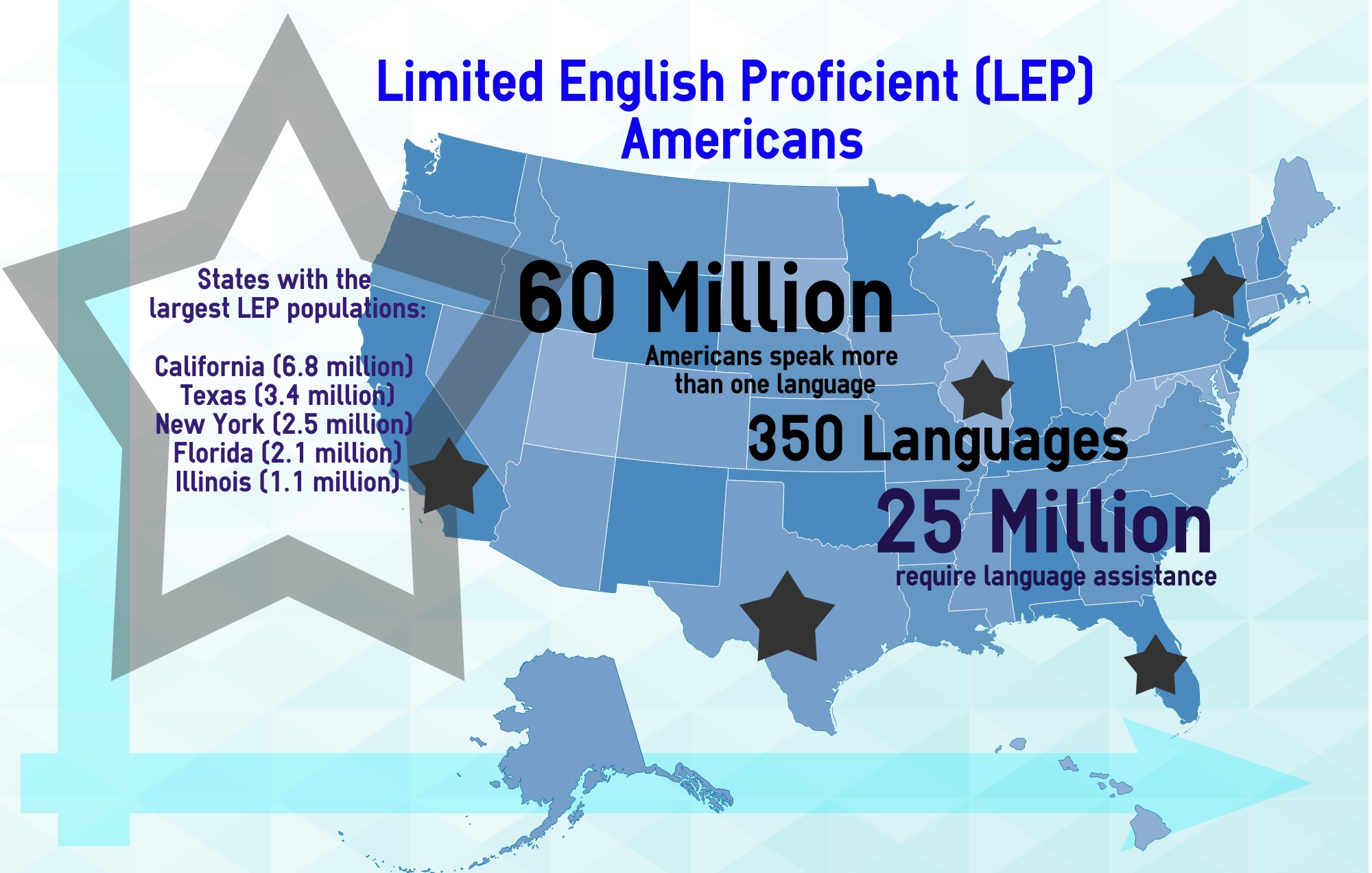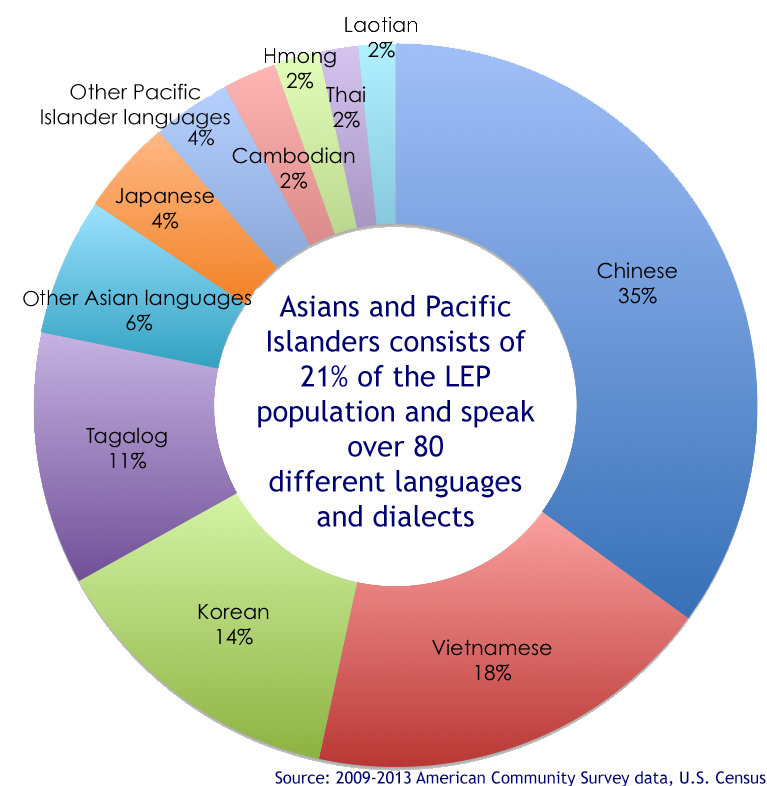
Did you know that more than 350 languages are spoken in the United States? In 2013, more than 60 million individuals in the country spoke a language other than English at home. While the majority of them are fluent English speakers, about 25 million are considered Limited English Proficient (LEP). Growing up with immigrant and refugee parents, our households were no different. Our families struggled to navigate the complex web of public programs and services in a language they were still learning to communicate in. This struggle is one that many LEP communities face. Hispanics continue to make up the vast majority (64%) of LEPs in the nation, but with changing trends in immigration patterns comes a growing need for in-language resources in other languages. Indeed, according to recent estimates, immigrants from Asian countries now outnumber Latin American immigrants.

This year marked the 15th anniversary of the landmark Executive Order 13166, “Improving Access to Services for Persons with Limited English Proficiency.” This Executive Order was issued in 2000 to ensure LEP individuals are able to receive information and services in a meaningful and accessible way from federal agencies and federal recipients of financial assistance. Since then, federal agencies have made great progress to improve in-language standards across the government. For example, the U.S. Department of Justice’s (DOJ) Civil Rights Division developed and maintains LEP.gov, a hub for agencies to share resources and house a variety of tips and updates for agencies and the public.
Agencies have also sought to leverage data and new technologies to better understand and reach LEP populations. For example, DOJ’s Civil Rights Division recently launched interactive and downloadable maps using American Community Survey data that identify the concentration of LEP populations at the national, state, judicial district, and county levels. Several agencies have also provided technical assistance trainings to federal recipients of financial assistance to ensure service and program providers are better able to engage with LEP individuals. In addition, agencies have improved their outreach, education, and communication with LEP populations by providing in-language materials and tools. For example, United States Citizenship and Immigration Services (USCIS) has broadened its reach to LEP customers by increasing the number of in-language resources.

Nevertheless, LEP individuals continue to face language-based barriers to accessing important benefits and services. As we look ahead, agencies must continue to prioritize the needs of LEP individuals and work to improve the delivery of federal services to LEP populations. To that end, the Limited English Proficient interagency working group, led by the Federal Coordination and Compliance Section within the DOJ Civil Rights Division at the Department of Justice, will meet today to share best practices and identify new approaches to ensure that all individuals have meaningful access to the services they need from the federal government. Agencies will also seek to build efforts to reach LEP populations into other cross-agency work. For example, member agencies of the Limited English Proficient interagency working group are also working with the White House Task Force on New Americans and with our White House Initiatives to reach immigrants and refugees as well as the larger AAPI and Hispanic communities.
For more on the federal government’s progress under this Executive Order, check out this fact sheet.
Doua Thor is the Executive Director of the White House Initiative on Asian Americans and Pacific Islanders and Alejandra Ceja is the Executive Director of the White House Initiative on Educational Excellence for Hispanics, both housed in the Department of Education.

